Trusts vs. Wills: What Works Best in the Hudson Valley for Estate Planning?
Estate planning is a critical process for safeguarding assets and outlining their future distribution. For deeper insights, visit mcneal.law. In the Hudson Valley, where family homes, commercial properties, and business interests are common, choosing between a trust and a will is especially significant; for personalized guidance, contact professionals in the area.
This article provides professional legal insights into the features, benefits, and drawbacks of both estate planning instruments. It reviews key components, probate implications, and differences in cost and privacy. The discussion emphasizes how family circumstances and asset types affect the decision, and it highlights estate planning laws unique to the Hudson Valley. The goal is to equip residents with clear and actionable legal advice addressing issues such as tax implications, probate delays, and asset protection, so that they can select the instrument that best aligns with their personal and financial goals.
Transitioning now to a detailed discussion, this article examines wills and trusts, provides answers to frequently asked legal questions, and helps Hudson Valley residents choose the appropriate estate planning strategy.
What Is a Will and How Does It Work in New York?
A will is a legal document in which the testator declares how assets will be managed and distributed after death. In New York, a will must satisfy specific legal requirements and formalities to ensure the testator’s wishes are honored during probate.
What Are the Key Components of a Valid Will in New York?
A valid New York will must include: • A clear identification of the testator and a declaration that it represents their final wishes. • Details on the appointment of an executor. • A comprehensive list and description of assets. • Specific instructions for asset distribution. • Signatures from the testator and at least two disinterested witnesses. These elements help prevent undue influence, errors, and fraud and reduce the risk of lengthy probate disputes.
Who Should You Choose as an Executor in Your Will?
The executor administers the estate, managing the probate process, paying debts, filing tax returns, and ensuring correct asset distribution. In New York, the ideal executor is capable, impartial, and financially responsible. Many choose a professional estates administrator or a trusted family member, while considering any potential conflicts of interest.
What Are the Benefits of Having a Will?
A will provides clear asset distribution, minimizes family disputes, and establishes a process for handling outstanding debts and taxes. It also permits the appointment of guardians for minor children—a critical aspect for many families. By detailing asset division strategies, a will can help mitigate probate delays and costs, while allowing updates that reflect changes in personal circumstances or law. Contact McNeal Law today to find out more about setting up a Will in New York.
What Is a Trust and How Does It Function in the Hudson Valley?

A trust is an estate planning tool creating a fiduciary relationship by which a trustee manages assets on behalf of beneficiaries. In the Hudson Valley, trusts are popular among affluent families and business owners for the flexibility, control, and privacy they offer. Trusts can be structured to take effect during the settlor’s lifetime or after death, providing varying degrees of asset management control.
What Are the Different Types of Trusts Available in New York?
New York law recognizes several types of trusts: • A revocable living trust allows the settlor to control and amend asset arrangements during their lifetime. • An irrevocable trust provides stronger asset protection and tax benefits by requiring the settlor to give up control. • Testamentary trusts, created through a will, come into effect upon death and are often used to benefit minor beneficiaries. • Special needs trusts are designed for beneficiaries with disabilities. Each trust type can be tailored to meet goals like tax optimization, creditor protection, or enhanced privacy.
What Are the Main Benefits of Setting Up a Trust?
Trusts offer several advantages: • They facilitate a smooth asset transfer without court intervention, thereby reducing probate delays and expenses. • Trusts provide enhanced privacy, as documents remain private compared to wills, which become public during probate. • They permit detailed instructions on how and when beneficiaries receive their inheritances. • Trusts are especially useful in the Hudson Valley for managing family businesses and high-value real estate over generations. Additionally, trusts may reduce estate tax liabilities and protect assets from creditors.
What Are the Responsibilities of a Trustee?
A trustee has a fiduciary duty to manage trust assets in line with the trust document and New York law. Responsibilities include: • Maintaining accurate records and accounting. • Investing prudently and distributing assets as scheduled. • Complying with all specified conditions. Due to these significant responsibilities, many clients opt for professional trustees, such as financial institutions or experienced attorneys, to minimize the risk of mismanagement and legal challenges.
How Do Trusts and Wills Differ: Key Comparisons for Hudson Valley Residents?
Trusts and wills differ in several key areas:
How Do Trusts and Wills Differ in Controlling Assets?
A will offers a one-time directive for asset distribution, effective only after death, and can face probate delays. In contrast, a trust allows for immediate and ongoing asset management, with the trustee distributing assets under predetermined conditions, which is particularly valuable for business owners and investors during transitional periods.
What Are the Probate Implications of Trusts vs. Wills?
A will must go through the probate process—a judicial validation that can be time-consuming, costly, and public. Most assets placed in a properly funded trust bypass probate, reducing processing time, legal fees, and public exposure, an important consideration for high-net-worth individuals.
How Do Privacy and Cost Compare Between Trusts and Wills?
Trusts offer substantially better privacy since their details are not part of the public record, unlike wills that eventually enter probate files. Although trusts often incur higher initial legal fees and administrative costs, they may provide long-term savings by avoiding probate expenses and litigation.
Which Offers More Flexibility: Trusts or Wills?
Trusts provide greater flexibility. They enable ongoing control over asset distribution with conditions and timelines that can accommodate changes in family or market circumstances. Wills, while simpler, lack this dynamic management capability. The choice ultimately depends on whether one prioritizes straightforward distribution or long-term management and protection of assets.
Which Is Right for You: Choosing Between a Trust and a Will in the Hudson Valley?

Choosing the right estate planning option depends on family dynamics, asset types, and long-term goals.
How Do Family Situations Influence the Choice Between Trusts and Wills?
For families with young children, blended dynamics, or potential disputes among beneficiaries, trusts help structure asset distribution and reduce conflicts by specifying conditions like age or educational milestones. For simpler family structures, a will may suffice without the additional administrative requirements.
How Do Asset Types Affect Your Estate Planning Decision?
Hudson Valley residents often hold real estate, family businesses, and diverse investments. Trusts are better suited for managing complex or interconnected assets with shared ownership, while a will might be adequate for straightforward, liquid asset estates or single-property holdings.
What Are the Tax Implications of Trusts vs. Wills in New York?
Both instruments affect tax outcomes differently. Trusts can be structured to minimize estate and gift taxes and sometimes allow tax-free asset transfers. While wills do not directly avoid estate taxes, they can include charitable bequests or other strategies to reduce tax burdens. Given New York’s intricate tax laws, professional legal advice is essential.
How Can You Avoid Probate With Your Estate Plan?
Trusts can be funded with the bulk of an individual’s assets to bypass probate entirely, thus saving time and administrative costs while preserving privacy. Other techniques—such as joint ownership or beneficiary designations—also help, but a trust remains the most comprehensive method for avoiding probate.
What Are the Specific Estate Planning Laws and Considerations in the Hudson Valley?
The Hudson Valley’s estate planning laws reflect state statutes and local judicial interpretations, requiring careful adherence to legal formalities.
How Do Hudson Valley Estate Laws Impact Trusts and Wills?
New York law mandates strict formalities for wills, including witness signatures and document authentication, ensuring that only properly executed wills succeed in probate. Trusts, on the other hand, require thorough documentation and periodic reviews to comply with legal standards, ensuring the settlor’s intentions are upheld and protecting against fraud.
What Are Common Assets in the Hudson Valley That Affect Estate Planning?
Typical assets include family homes, agricultural lands, historic properties, commercial real estate, and family businesses. Each asset type may demand special considerations—for instance, succession planning for family farms or detailed management instructions for commercial properties—to minimize estate taxes and protect against creditor claims.
How Can You Find a Qualified Estate Planning Attorney in the Hudson Valley?
Finding an experienced attorney involves researching local legal directories, reviewing client testimonials, and confirming expertise with both trusts and wills. Prospective clients should inquire about the attorney’s experience with estate disputes and complex asset arrangements. Professional organizations such as the New York State Bar Association can also provide referrals.
How Do You Set Up a Trust or Will in the Hudson Valley?

Establishing a trust or will requires careful planning, precise documentation, and adherence to statutory requirements. The process includes collecting detailed financial records, consulting with qualified estate planning attorneys, and ensuring all legal formalities are met to clearly execute the investor’s wishes.
What Are the Steps to Create a Will in New York?
Typically, creating a will involves: • Assessing one’s assets and consulting with an estate planning attorney. • Drafting a comprehensive document that outlines asset distribution, appoints an executor, and names guardians for minor children if necessary. • Signing the will in the presence of at least two disinterested witnesses. • Storing the will securely and updating it periodically after major life events.
How Do You Establish a Trust in the Hudson Valley?
Setting up a trust involves: • Drafting a detailed trust instrument that lists the trustee’s responsibilities and the plan for asset distribution. • Transferring asset titles to the trust to remove them from probate. • Completing all necessary legal documentation and working with professional advisers to ensure proper funding and administration. Once established, the trust is managed according to its terms and applicable legal precedents.
What Costs Are Involved in Setting Up Trusts and Wills?
Costs vary with estate complexity. A simple will may cost a few hundred dollars, whereas a comprehensive trust—especially for high-net-worth estates—can range from several hundred to thousands of dollars. Ongoing administrative expenses may also apply, particularly in the case of trusts. Prospective clients should obtain detailed cost estimates from their estate planning lawyer to determine the most cost-effective approach.
What Are the Most Frequently Asked Questions About Trusts and Wills in the Hudson Valley?
Below are concise answers to common estate planning questions:
What Is the Difference Between a Will and a Trust?
A will directs asset distribution after death and requires probate, whereas a trust is managed by a trustee for the benefit of beneficiaries and generally avoids probate. Trusts offer ongoing control and privacy compared to the one-time directive of a will.
Which Is Better for Avoiding Probate: A Will or a Trust?
Trusts are better suited to bypass probate, transferring assets directly to beneficiaries without court involvement, unlike wills which must undergo potentially lengthy and costly probate.
How Much Does It Cost to Set Up a Trust or Will in New York?
A basic will might cost between $300 and $1,000, while a comprehensive trust can range from $1,000 to $5,000 or more, depending on complexity and asset value. Fees vary based on attorney rates and the structure of the assets.
Can I Change My Will or Trust After It’s Created?
Yes, revocable wills and living trusts can be amended or revoked. However, irrevocable trusts typically cannot be altered once established. Legal guidance is recommended to ensure all modifications comply with New York law.
How Long Does It Take to Create a Will or Trust?
The process usually takes several weeks to a few months. A simple will may be prepared in a few weeks, while trusts—due to detailed asset transfers and administrative planning—can take longer. Early planning is advised to avoid delays.
Frequently Asked Questions
Q: What factors should influence my decision between a trust and a will?
A: Consider your family structure, asset complexity, and your priority in avoiding probate. Trusts offer ongoing management and privacy, while wills provide a simpler, though probate-bound, framework. Consulting a qualified estate planning attorney in the Hudson Valley is recommended to address specific circumstances.
Q: How does probate affect wills in New York?
A: Probate is the legal process to validate a will and distribute assets, which can be both time-consuming and public. Wills undergo court supervision that may delay distribution and increase costs, whereas trusts are designed to bypass probate for faster, more confidential transfers.
Q: Are trusts more expensive to set up than wills?
A: Generally, trusts incur higher initial legal fees due to their complexity and ongoing management requirements. However, they might yield long-term savings by avoiding probate-related expenses. Costs depend on individual situations and asset intricacy.
Q: Can estate planning documents be updated after creation?
A: Yes, revocable wills and trusts can be amended or revoked to reflect changes in family dynamics, asset values, or legal needs. Irrevocable trusts, however, are typically fixed upon establishment, so careful planning is essential.
Q: What role does an executor or trustee play in estate planning?
A: An executor or trustee manages and distributes assets in accordance with the will or trust. They are responsible for paying debts, filing taxes, and ensuring beneficiaries receive their inheritances. Choosing a trustworthy and capable individual or institution is crucial for successful estate execution.
Contact McNeal Law Today!
Establishing a trust or a will is essential for creating an estate plan that fits your long-term goals. Both instruments have unique advantages and legal considerations that should be weighed in light of family dynamics, asset types, and future needs. In the Hudson Valley, where asset diversity is common, professional legal guidance is invaluable for minimizing probate challenges while maximizing privacy and tax efficiency. Proper planning and consultation with experienced estate planning attorneys ensure that your legacy is preserved according to your wishes.






